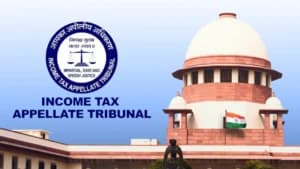The Supreme Court has made it clear that using offensive words like "impotent" alone cannot be treated as abetment of suicide under Section 306 of the Indian Penal Code (IPC). In a recent judgment, the Court quashed criminal proceedings against a man’s in-laws who were accused of pushing him to suicide.
The case was based on the suicide of a man named Dinesh, who left behind a note blaming his wife and her relatives. The family members of the wife had allegedly insulted Dinesh by calling him "impotent" and used abusive language during a quarrel on 10 November 2013. His wife then left with her relatives to return to her parental home. A month later, on 9 December 2013, Dinesh died by suicide.
Read Also:- Unemployed Husband Can Be Partially Dependent on Deceased Wife's Income: Supreme Court in Motor Accident Claim Case
Earlier, the Madras High Court had refused to quash the charges against the in-laws. However, the Supreme Court bench of Justices Abhay S. Oka and Augustine George Masih set aside that order, observing that there was no direct provocation or sustained harassment that could amount to abetment.
"From the suicide note, no abetment can be said to have been established that the accused instigated the deceased or there being any persistent cruelty or harassment which would make out an offence of abetment of suicide," the Court noted.
The suicide note did mention emotional distress and humiliation, but the Court pointed out that there was no contact between the deceased and the accused after the incident on 11 November 2013. The one-month gap between the alleged abuse and the suicide weakened the case of continuous harassment.
"Mens rea cannot be presumed, but must be ostensibly present and visible, which is missing in the present case," the Court said, underlining that the mental element of intention to drive someone to suicide was not established.
The Court also discussed the legal requirements of abetment under Section 107 of IPC. For someone to be held guilty under Section 306 (abetment of suicide), there must be clear evidence of either instigation, conspiracy, or active help in the act.
"Merely because the act of an accused is highly insulting to the deceased by using abusive language would not by itself constitute abetment of suicide," the Court stated, referring to its earlier ruling in M. Arjunan v. State.
The judges emphasized that each case of alleged abetment must be examined on its own facts and that human behavior is complex. While hurtful words can cause emotional pain, they must be clearly linked to the act of suicide to meet the legal threshold of abetment.
In this case, the Court found that there was no such link. The gap in time, absence of any contact during the period, and lack of any strong act pushing the deceased to the edge all pointed to the fact that the legal ingredients of Section 306 IPC were not satisfied.
"When offence under Section 306 itself is not being made out, continuance of the proceedings against the Appellants cannot be permitted,” the Court concluded.
Read Also:- Allahabad High Court PIL Seeks SIT Probe Into Robert Vadra's Remarks on Pahalgam Attack
Accordingly, the Supreme Court allowed the appeal, quashed the Madras High Court judgment, and dismissed the criminal proceedings pending before the trial court in Kanchipuram.
Case Title: SHENBAGAVALLI AND ORS. VERSUS THE INSPECTOR OF POLICE, KANCHEEPURAM DISTRICT AND ANR.
Appearance:
For Petitioner(s) Ms. Rebecca John, Sr. Adv. Mr. John Mathew, AOR Ms. Rachana Srivastava, Sr. Adv. Mrs. Mona K. Rajvanshi, AOR Ms. Monika, Adv. Mr. Anurag Kashyap, Adv.
For Respondent(s) Mr. V Krishnamurthy, Sr. A.A.G. Mr. D.Kumanan, AOR Ms. Deepa S, Adv. Mr. Sheikh F Kalia, Adv. Ms. Azka Sheikh Kalia, Adv. Mr. Veshal Tyagi, Adv. Mr. Chinmay Anand Panigrahi, Adv.















